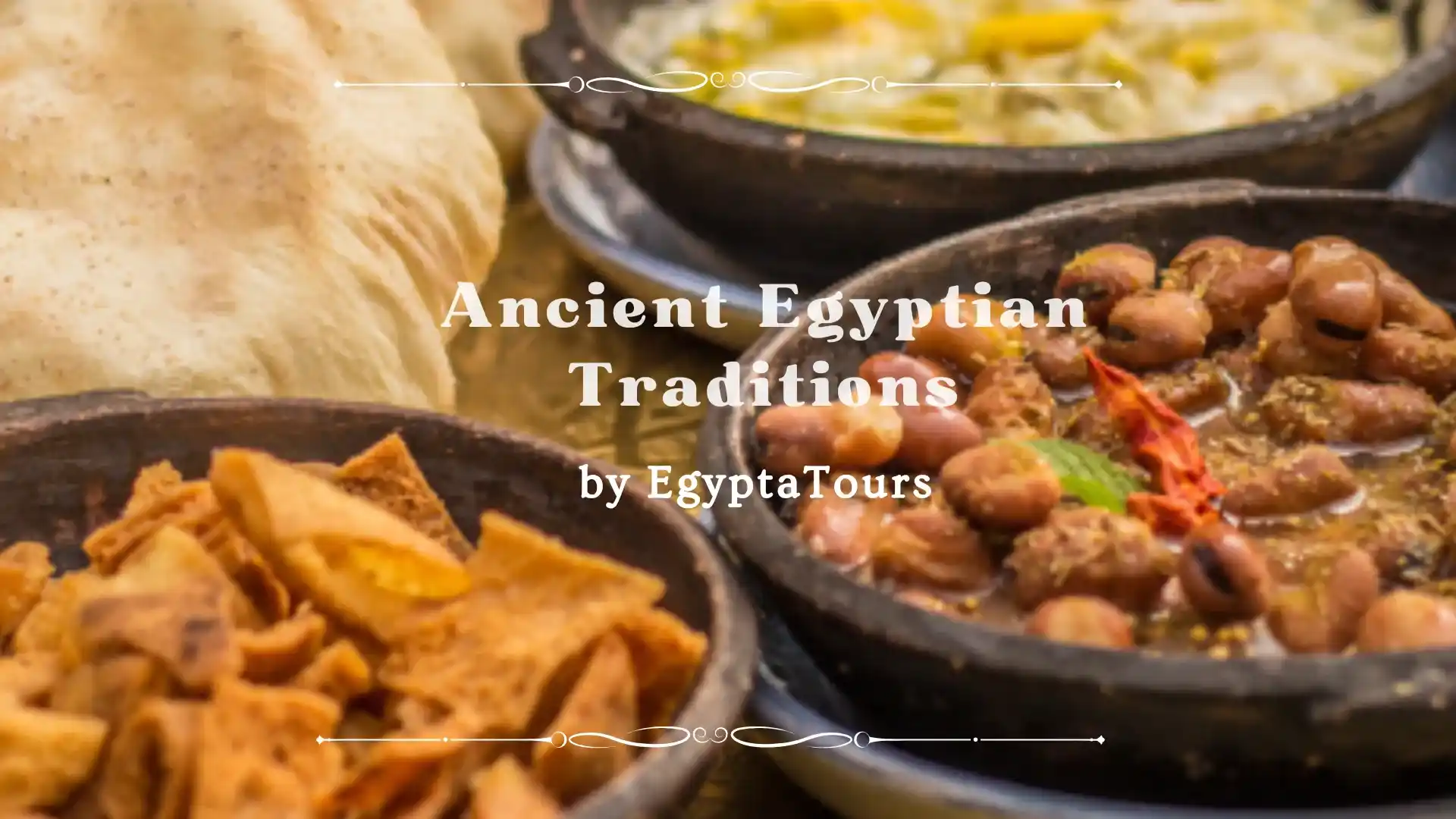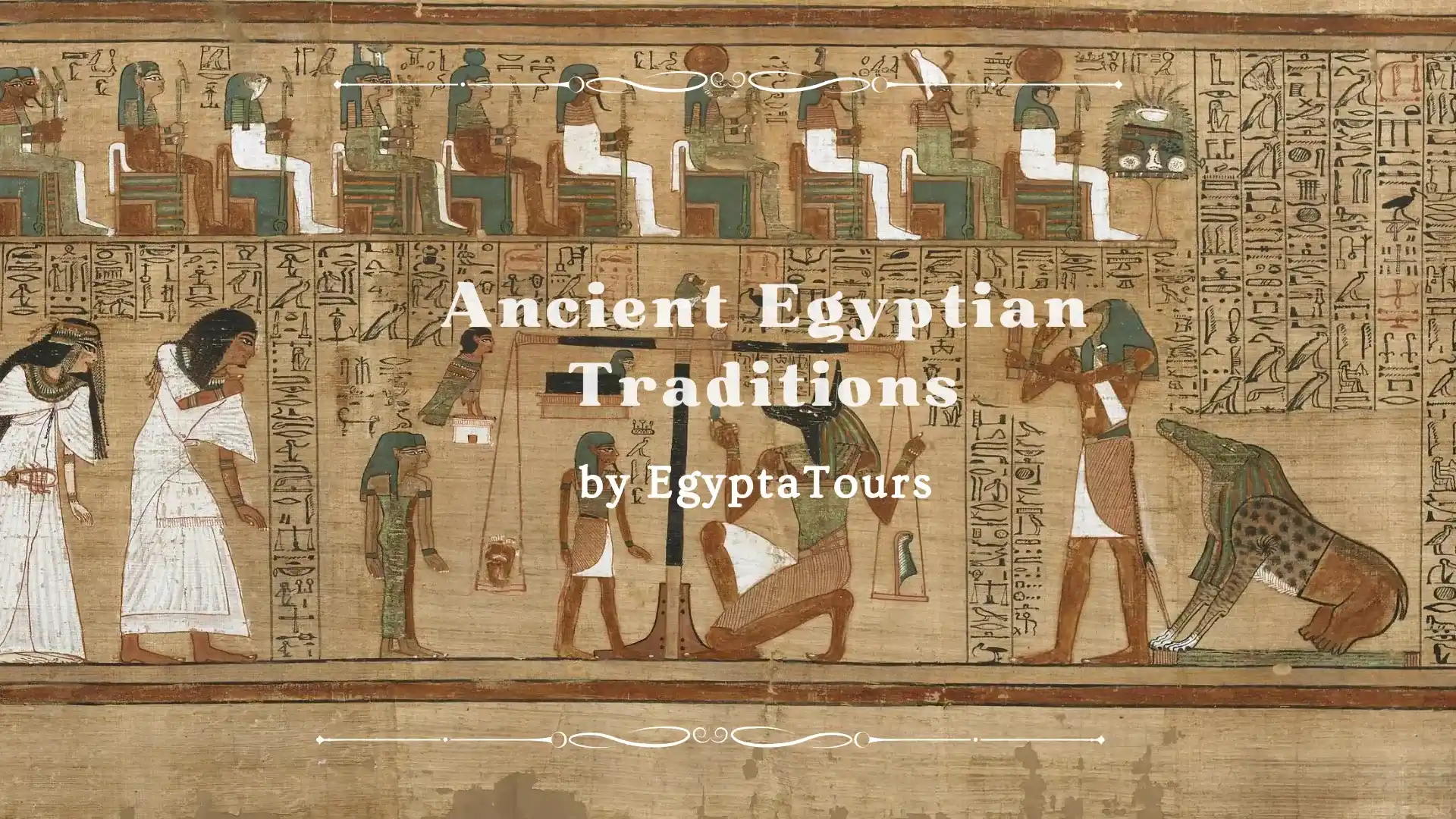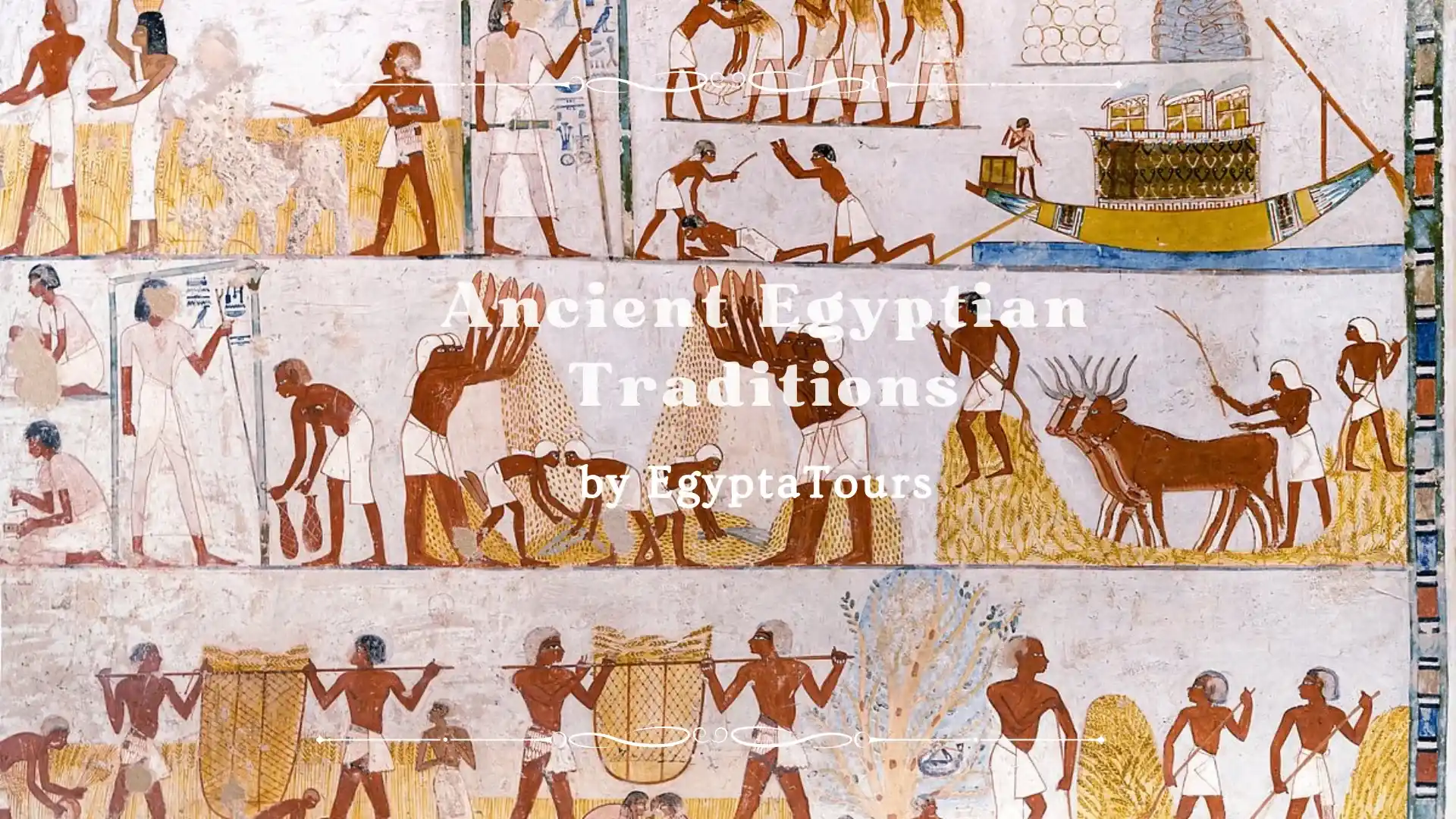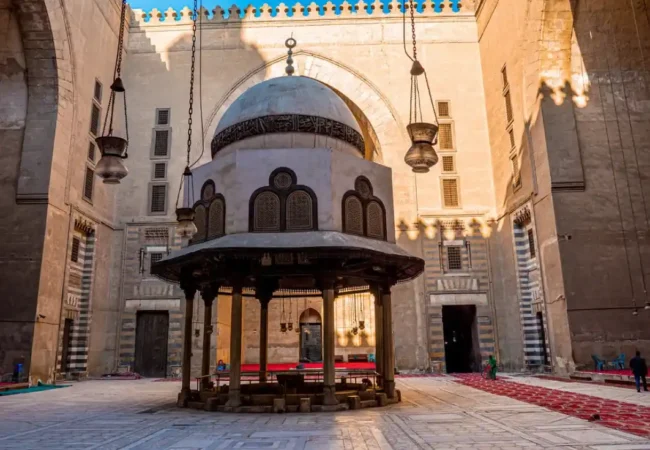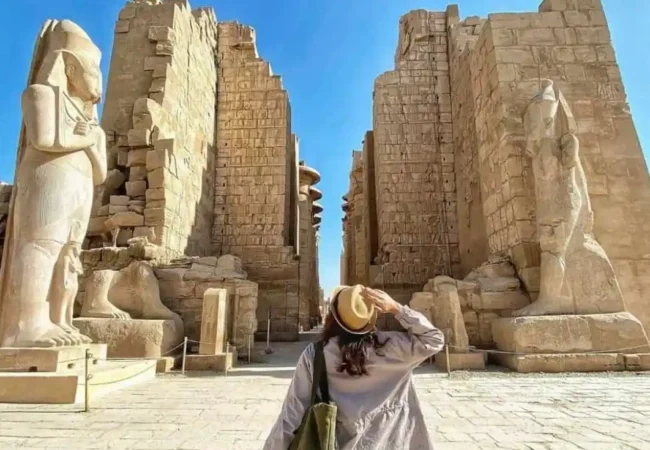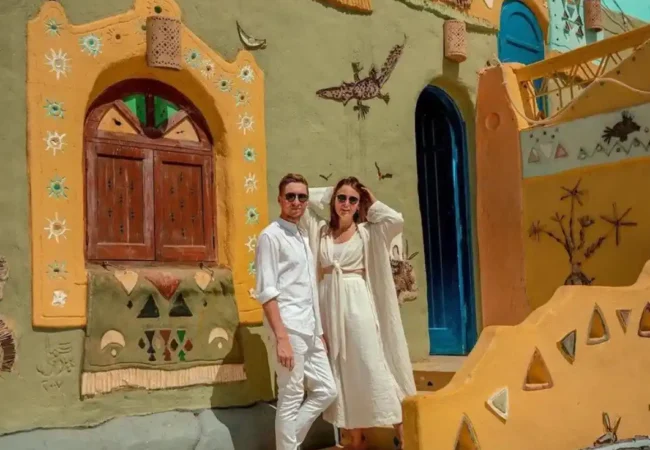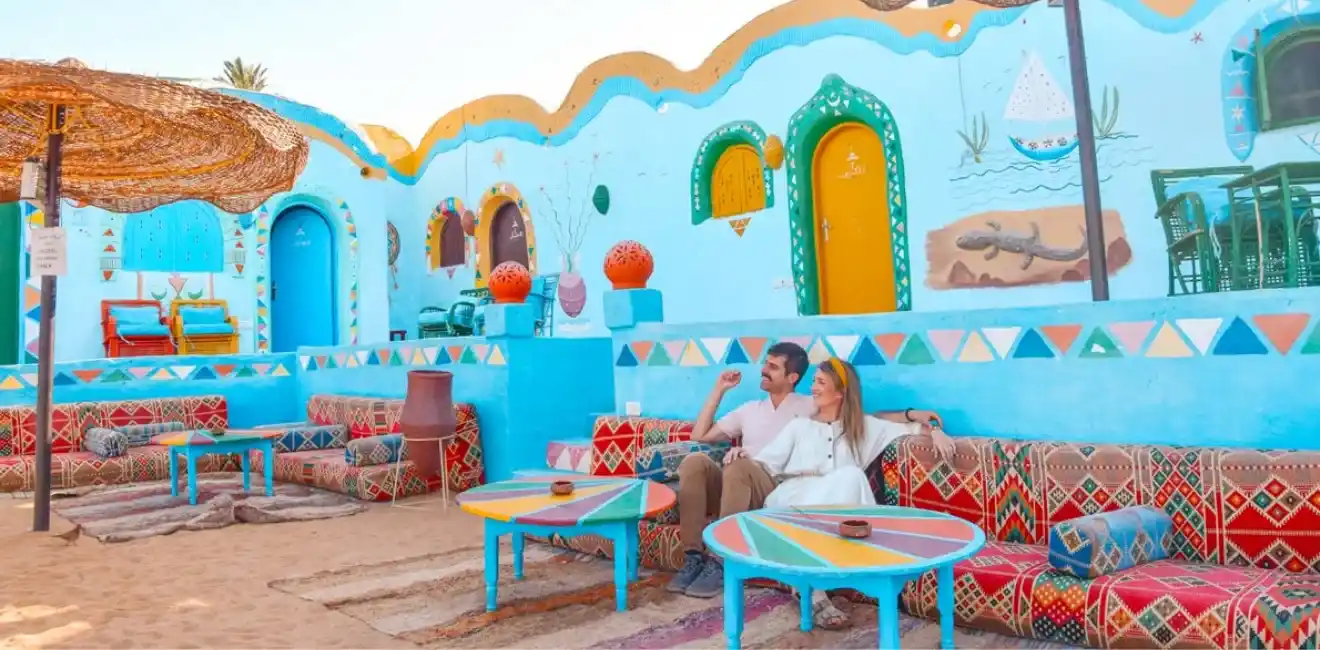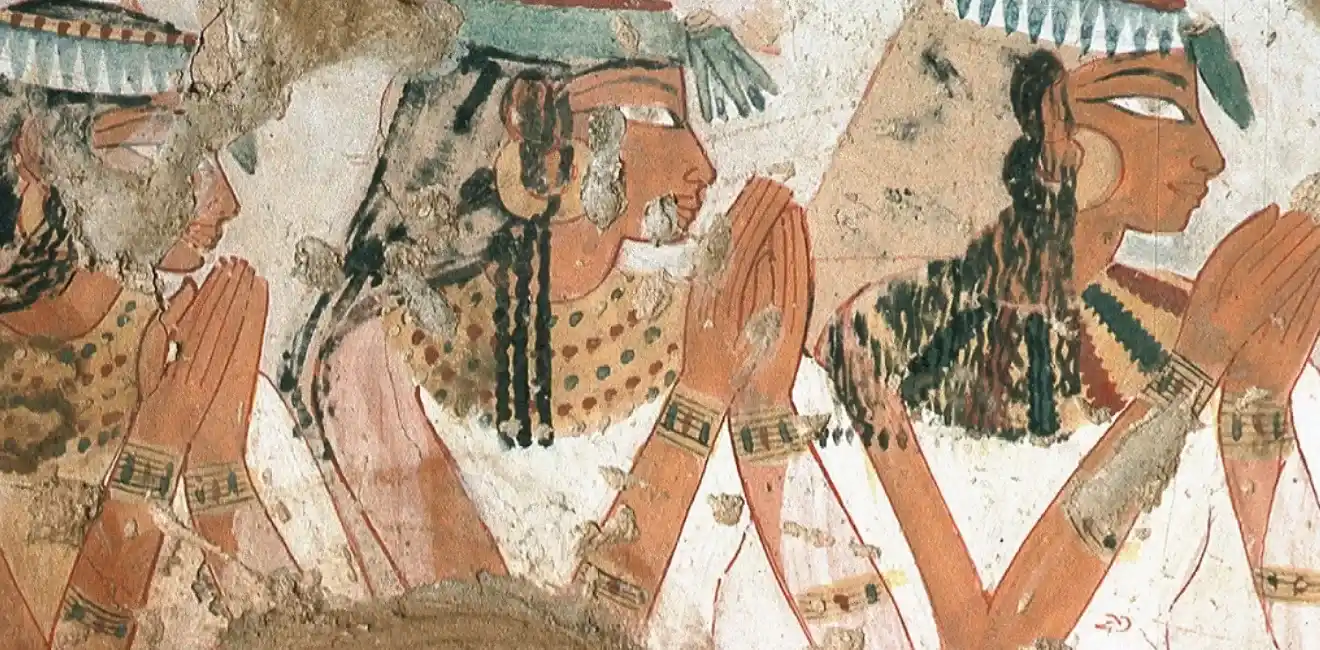
Ancient Egyptian Traditions and Customs
The ancient Egyptians were known for their traditions and customs that were reflected in their daily lives, and were linked to the details of their lives and their beliefs, whether in celebrations, at work, or in death.
This has formed clear features of their lives throughout the ages. In this article, we will learn about the most important Ancient Egyptian Traditions and Customs, and what are the most important laws and ethical principles in Pharaonic society.
The life of the ancient Egyptians was based on many different traditions and customs. Among the most prominent of these traditions were:
Religious Rituals in Ancient Egypt
The lives of the ancient Egyptians were linked to many religious rituals, which formed an important part of their daily life. They believed that there was another life after death, and this was one of their most important beliefs that was reflected in their behavior.
They used to make offerings to the gods, and they would hold many religious celebrations related to fertility and agriculture, and funerary rituals related to preparing the body after death. They used to perform religious rituals and celebrations in the Egyptian temples, and the priests were the ones who organized and preserved these rituals.
Social Customs in Marriage and Birth
The ancient Egyptians were famous for many social customs, especially in marriage and birth. They preferred to marry at an early age because they believed that this would ensure family stability and organize the lives of men and women. As for birth, they relied on the use of some symbols and spells that they thought brought safety to the newborn child.
Clothing and Adornment in Ancient Egyptian Society
The ancient Egyptians relied on wearing light fabrics made of linen, and the forms of clothing differed according to social status. As for adornment, it played a large role in their lives because they were keen on using jewelry made of precious stones, in addition to using cosmetics such as perfume and kohl, and this was part of their daily habits.
The Role of Women in Customs and Traditions
The Egyptian woman had a clear role in the customs of the ancient Egyptians, especially within her family, where she participated in managing the affairs of her house and helped in raising her children, and she had a role in social events. Women practiced many professional jobs such as weaving and spinning, and participated in many religious rituals, which made the presence of women an essential part of daily life.
Funerary Rituals and Afterlife Beliefs
There are many beliefs and funerary rituals that were associated with the ancient Egyptians, the most famous of which is life after death, as they believed that death was a transition to another life. So they would mummify the body of the deceased because they believed they were preserving it.
They also prepared the tombs and placed food and some tools in them, thinking that they would use them in the other life. These rituals were associated with reading some texts and rites because they believed they helped the deceased to pass safely into the other life.
What is Egyptian Culture Famous For?
Egyptian culture is famous for its diversity and its extension throughout history because it combines ancient customs and modern traditions. Egyptian culture has been associated with many aspects such as:
- The Colloquial Language The Egyptian dialect is distinguished by being one of the most understood dialects in the Arab countries, due to the spread of Egyptian art through series and films, and this has helped in enhancing cultural communication.
- Egyptian Cuisine Egypt is famous for many delicious popular Egyptian dishes such as ful, ta’ameya, koshary, and other dishes that are part of the daily culture of Egyptians.
- Poetry and Literature Egypt included many writers and authors such as Taha Hussein and Naguib Mahfouz, so Egypt became one of the richest countries in stories and novels that express Egyptian society.
- Social Customs and Traditions Egyptian culture is linked to many social customs and religious celebrations, which has made it rich in many different patterns, and made it reflect the lifestyle over time. It is also linked to famous traditions on occasions such as birth, marriage, and the month of Ramadan.
What are the Traditional Egyptian Foods?
Egyptians are famous for many traditional Egyptian foods that reflect their Egyptian culture. Among the most prominent of these dishes are:
- Ful Medames, which is one of the most famous dishes among Egyptians, and ful is considered a main meal for breakfast.
- Koshary, which is a mixture of pasta, rice, and lentils, and it is one of the most famous Egyptian foods.
- Ta’ameya, made from crushed fava beans, is a famous popular dish for breakfast.
- Fatta, which is a dish of rice, meat, sauce, and toasted bread, and is mostly served on special occasions.
- Mahshi, which is a group of vegetables stuffed with rice, such as grape leaves, peppers, zucchini, and eggplant.
- Molokhia, which is cooked with coriander and garlic, and served with bread or rice.
- Okra with meat, which is a famous dish, and is often cooked with lamb.
- Musaqa’a, which is a mixture of fried eggplant and potatoes with sauce and is served in most popular restaurants.
Laws and Ethical Principles in Pharaonic Society
Pharaonic society was an organized society governed by many laws and ethical principles, which contributed to the stability of this society for many long years. These laws were unwritten but they appeared through inscriptions and texts. Although the Pharaoh was the source of justice and law, these laws were implemented through the priests.
As for the ethical principles, they included respect and honesty. Despite that, there was no equality for all, as the nobility class had many privileges over the common people, and this led to the existence of social disparity among the people. Therefore, justice for the Pharaohs existed as a principle only, but it was not achieved on the ground.
Professions and Crafts and their Impact on the Lifestyle
Professions and crafts played an important role in organizing and building Egyptian society, and helped in its economic development.
Among the most prominent of these professions were:
- Agriculture, as it was the main profession for most of the people, and they relied on growing lentils, barley, and wheat.
- Construction, as the workers were concerned with building temples, tombs, and pyramids using stones.
- Trade, as carpenters used wood to build boats and furniture.
- Pottery and ceramics industry, Egyptians relied on using pottery for food and water, and they made many household tools from it.
- Spinning and weaving, as men and women worked in spinning and weaving and making clothes.
These professions greatly affected the lifestyle of the Egyptians and helped them in organizing society, and contributed to supporting the local economy through trade, industry, and production. These professions were reflected in their daily lives and were linked to some beliefs such as making statues, coffins, and others.
Conclusion
The Ancient Egyptian Traditions and Customs are a picture of their beliefs and their lives and have reflected their view of religion and life. They have left a clear imprint on history and made the Egyptian civilization a source of inspiration to this day, and this has proven the extent of the authenticity of the ancient Egyptian civilization.
FAQs
What are 5 facts about ancient Egyptians?
Among the most famous known facts about the ancient Egyptians is that they built the pyramids as tombs for the kings, they relied on the Nile River for agriculture, they were the first to use hieroglyphic writing, they believed in justice and equality, and they believed in life after death.
How did ancient Egyptians celebrate?
The ancient Egyptians used to celebrate through dancing and music, offering sacrifices to the gods, using decorations and special clothing for the celebration, and providing banquets on occasions.
What are the gift giving traditions in Egypt?
Gifts are given in Egypt on occasions such as births, marriages, birthdays, graduations, and success, and this reflects the spirit of affection and generosity among Egyptians.
What do kids do in ancient Egypt?
Children in ancient Egypt used to help their families in handicrafts and agriculture. As for the children of the rich, they used to learn to read and write, and they would participate in some religious rituals, especially the children of the priests.








